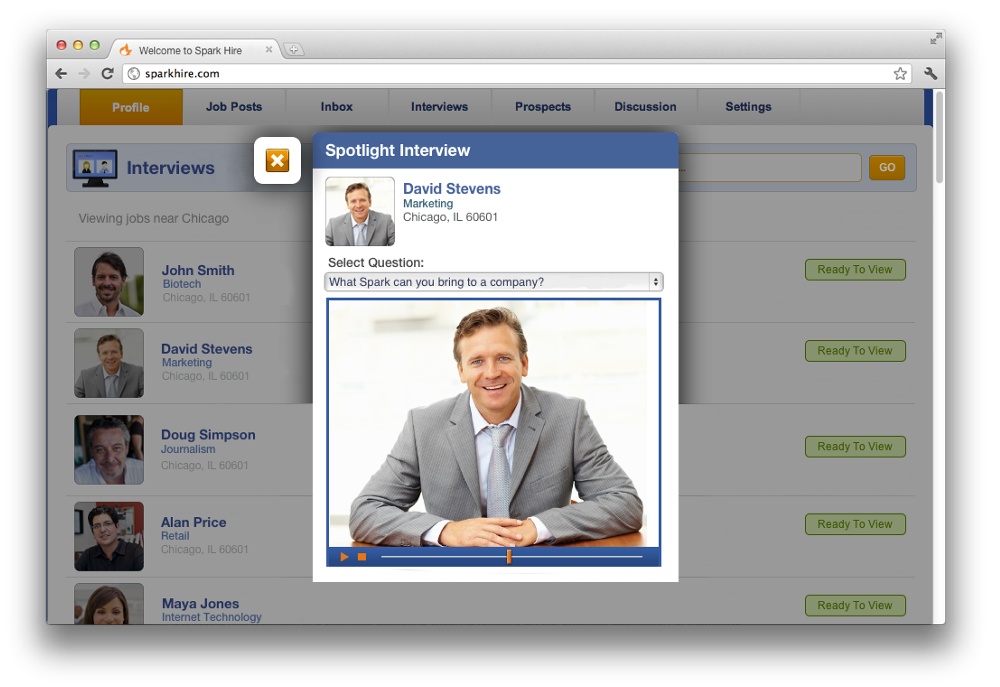 So job seekers, you’ve heard about this video interview business a ton. Especially if you have been keeping up with our blog here. You know it can be a great tool for the hiring process, but what type of video interview will employers be using for specific areas. How do they choose the right type of job interview? Let’s talk about the benefits and best uses of three types of video interviews that employers may ask you to participate in early on in the hiring process: one-way video interviews, two-way video interviews and video resumes.
So job seekers, you’ve heard about this video interview business a ton. Especially if you have been keeping up with our blog here. You know it can be a great tool for the hiring process, but what type of video interview will employers be using for specific areas. How do they choose the right type of job interview? Let’s talk about the benefits and best uses of three types of video interviews that employers may ask you to participate in early on in the hiring process: one-way video interviews, two-way video interviews and video resumes.
One-way Video Interviews
A one-way video interview is a great way to speed up the hiring process for both employers and you, the job seeker. As we point out in our HR blog, one-way video interviews are quickly replacing phone screens because they provide a very useful impression of each candidate. Scheduling is simple, the employer can listen to as much or as little of your interview as they need, and it is much easier for them to compare and contrast candidates. Plus, it’s faster. Employers can review 10 one-way video interviews in the time it takes to complete one phone screen. This is beneficial to you as well because if the employer missed something you said they can just simply rewind and play it over.
Implementing one-way video interviews is very easy for employers on a platform like Spark Hire. It shouldn’t be surprising if you get a request to participate in a one-way video interview in your job search these days. With the one-way video interview, employers develop a set of questions to include with the normal application, and provide instructions for job seekers to record a response. It’s close to being the easiest candidate screen ever!
Two-way Video Interviews
Two-way video interviews are another great tool that employers can use early in the hiring process. After an initial video screening, employers can continue to eliminate candidates before ever bringing their job seekers on-site. This is better for scheduling purposes, and for candidate experience as well. Receiving a rejection is always far worse after going through the trouble of traveling to a job interview. Employers can alleviate that worry by virtually interviewing with you first. They can get a great feel for your personality, knowledge and communication skills through the live conversation of a two-way video interview. Then you can both know if you come in for a traditional, in-person interview that it won’t be a waste of time for either parties.
Video resumes
Although not technically a job interview, when employers ask for video resumes it’s just another great way to use technology to ease the hiring process. A video resume offers many of the same advantages of a one-way video job interview. However, a video resume is usually much shorter, gives the job seekers free reign to express themselves, and the employer doesn’t have to prepare questions.
Many candidates already have a standard video resume, much as we all have a standard paper resume. It’s also a great way to make yourself stand out from other candidates in the hiring process. So if you are heavily embedded in your job search, it’s time to get acquainted with video interview and all the different types. Chances are this is not the last time you will hear of them.
Have you experienced or participated in video interviews before? How was it compared to a traditional job interview? Leave a comment below, or send me a tweet: @ithinkther4iamb


Add comment